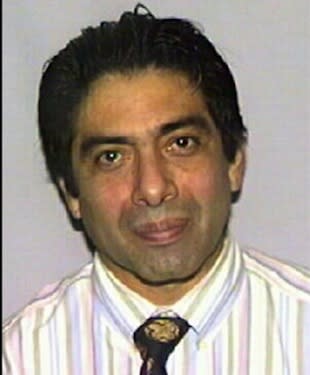 The Sideshow
The SideshowCharges dropped against fugitive doctor, because evidence is using too much space on federal servers

The federal government has more than 400,000 pages of evidence against fugitive Miami doctor Armando Angulo, taking up some two terabytes of digital space. On the surface, it sounds like a pretty solid case. But at the urging of prosecutors, charges were dropped against the doctor because the evidence is simply taking up too much space on government servers.
"Continued storage of these materials is difficult and expensive," wrote Stephanie Rose, the U.S. attorney for northern Iowa, describing the ongoing evidence storage as "an economic and political hardship" for the Drug Enforcement Administration (DEA).
As the Associated Press notes, the collection of evidence against Angulo, who is charged with illegally selling prescription medicines online, is enough to print the classic novel "War and Peace" 625,000 times.
The evidence against Angulo alone reportedly was taking up 5 percent of the DEA's entire worldwide global storage network. Part of that limited storage capacity stems from the fact that the DEA has not recently upgraded its storage capacity. An external hard drive with a terabyte of storage can be easily purchased online at outlets like Best Buy for around $100.
Angulo fled to his native Panama shortly after the investigation began in 2004. In 2007 he was indicted on federal charges of selling prescription drugs online to patients who were never examined or interviewed by licensed physicians.
The investigation is the largest of its kind in U.S. history and has already led to the conviction of 26 individuals, including 19 doctors.
U.S. District Judge Linda Reade dismissed the case with prejudice, meaning it cannot be refiled in court. However, Angulo cannot return to the U.S. where he is still wanted on other charges. Authorities say his alleged crimes were not victimless, costing Medicaid $6.5 million and leading several individuals into drug addiction and other health risks.

